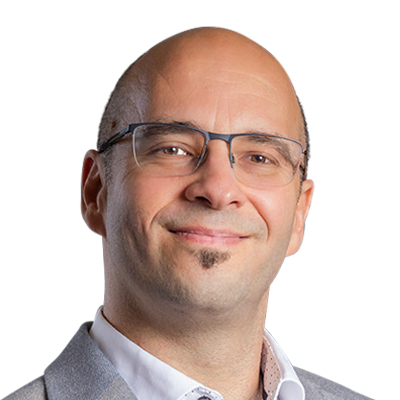 |
| By Jurica Dujmovic |
The recent acquisition of Twitter by tech mogul Elon Musk has sparked a controversial debate about the role of high-profile individuals in shaping the crypto market.
It's no question that influencers — and social media in general — have impacted the crypto space. Each time a notable figure gives their 2 cents to the world, the crypto market reacts.
Some of these have been for the better of the crypto community, like project leads and legitimate developers educating a wider audience about the benefits of their projects and the strong communities they've fostered.
But with the good comes the bad. Social media has also given critics a platform to air their own opinions … which can seem out of touch to those of us in the know. Just take Warren Buffett's numerous vilifications of crypto.
So, what role can we expect social media and influencers to play, and how can we curate that role so its impact falls more generally on the "net positive" side of this equation?
Well, before we answer that, it's important we first consider the nature of social networks — namely, Twitter.
"Twitter isn't just a commercial technology platform; it's a community," says Jon MacDonald, CMO of Minima, an ultra-lean Layer-1 blockchain.
"Communities are hard to build, yet easy to destroy. Building a 'digital town square where matters vital to the future of humanity are debated,' as proclaimed by Elon Musk, requires several elements to exist — in particular, a volume of people who feel there's an enabling and safe environment that's positively geared toward freedom of expression. Lose that feeling, lose that trust, and you lose the people — and the platform ceases to exist."
"The impact of social media on crypto prices is no surprise when emotion is involved. If someone famous claims a certain token is going 'to the moon,' then it's normal for people to buy that token in the hope that they'll benefit."
Jon's last remark got my gears turning. And I didn't need to think long before a great example came to mind.
EthereumMax (EMAX, Unrated) is a lackluster cryptocurrency token built on top of Ethereum, which recently moved to Arbitrum.
It was famously promoted by Kim Kardashian, who was later fined by the Securities and Exchange Commission for failing to disclose that she was paid $250,000 to promote the token to her 225 million Instagram followers.
"The EthereumMax scandal is not an isolated event," said Matt Smith, CEO and founder of compliance technology and data analytics firm SteelEye, to Forbes in October.
"We've seen numerous examples of the ability of celebrities and influencers to significantly shift the price of financial instruments by utilizing the global reach of social media."
It's no surprise that Elon Musk is probably the most famous example.
Last year, the world's second-richest man and CEO of luxury-car manufacturer, Tesla (TSLA), took to Twitter and asked his 63 million followers if he should sell 10% of his Tesla stock, promising to abide by the result of the poll.
This caused Tesla's share price to plummet by 12%. He also managed to manipulate the stock price by branding Tesla's valuation as "strange," which sent share prices soaring.
Smith continued in his Forbes interview, "Just as noncompliance in financial services carries high penalties, so should modern market manipulation by social media. The judge in the EthereumMax case rightly pointed to the combined danger of being able to easily mint new digital currencies and leverage celebrities' powerful influence via social media.
However, he said the onus is on investors to "act reasonably." I would argue that the current system fails to sufficiently safeguard investors, and as such, caution that the verdict might send out the wrong message. It's clear that if we don't introduce more rigorous and clear regulations around social media usage, this type of online activity will only become more prolific.
The finance sector is heavily regulated and there are stringent advertising rules and regulations in place to prevent market manipulation. But there's a gaping hole in the framework as evidenced by this case, and it's time for regulators to intervene before too much damage is done.
To counter this call for more regulation where social media meets the markets, others rightfully point out that Twitter does its own share of self-regulation. One of those voices belongs to Brent Campbell, managing partner and founder of NXS Crypto Fund, who shared his experience with me:
"I'm very active on Twitter and have witnessed every major crypto event in real time this past year.
"I watched several bank runs in real time on Twitter, such as Terra (LUNA), Celsius (CEL, Tech/Adoption Grade "C") and FTX. Every project gets tested in real time based on the flow of information, blockchain reporting and crypto Twitter reporting.
Hysteria can lead to severe damage but also has leads to finding out frauds like FTX in real time.
"On the positive side, there are non-fungible token projects like 'DeGods' building their projects and communities in public on social sites, even in a bear market. GMX (GMX, Unrated) is another example, building one of the strongest decentralized trading platforms and communities through Twitter Spaces and Discord.
Building in public will be a common theme in 2023," he concluded.
Indeed, influencers and celebrities can be a driving force in the crypto market, as they have the platform and reach to shape the narrative around the digital assets.
However, it's important to remember that these individuals, while powerful, aren't the only influence on the market … and their opinions aren't facts. It's essential that investors and the entire crypto community engage in responsible and informed behavior, and that regulators take the necessary steps to protect the integrity of the crypto space.
Regulation, however, must be done in a way that respects the unique nature of crypto and promotes growth and innovation, rather than stifles it.
Most regulation can be achieved via automated processes embedded in decentralized finance and adequate education of market participants.
In this regard, communities are paramount, as strong and informed communities empower their members, as well as the projects they form around.
Ultimately, it's up to all of us to ensure the crypto market remains a safe, secure and prosperous space.
So, let's continue to work together to make it happen.
Best,
Jurica

